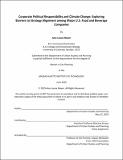| dc.contributor.advisor | Mariana Arcaya. | en_US |
| dc.contributor.author | Meyer, Amy Louise. | en_US |
| dc.contributor.other | Massachusetts Institute of Technology. Department of Urban Studies and Planning. | en_US |
| dc.date.accessioned | 2020-02-28T20:53:21Z | |
| dc.date.available | 2020-02-28T20:53:21Z | |
| dc.date.copyright | 2019 | en_US |
| dc.date.issued | 2019 | en_US |
| dc.identifier.uri | https://hdl.handle.net/1721.1/123972 | |
| dc.description | This electronic version was submitted by the student author. The certified thesis is available in the Institute Archives and Special Collections. | en_US |
| dc.description | Thesis: M.C.P., Massachusetts Institute of Technology, Department of Urban Studies and Planning, 2019 | en_US |
| dc.description | Cataloged from student-submitted PDF version of thesis. | en_US |
| dc.description | Includes bibliographical references (pages 105-111). | en_US |
| dc.description.abstract | Over the past several decades, our society has experienced an evolution in its expectations of the corporate sector. The concept of corporate social responsibility (CSR) has emerged to encompass not just what companies do with their profit, but how they make it. Responsibility towards climate change is a central pillar. While companies are increasingly taking steps to address their contributions to climate change, their political activities are often not aligned with this goal. Many companies continue to directly and indirectly engage in political activities that deter climate change policy, such as lobbying or belonging to trade associations that seek to prevent climate action. Amidst growing calls for corporations to take greater responsibility for their political contributions, this thesis examines the barriers climate-leading companies face in aligning their CSR strategies with their political engagement strategies. Focusing on the Food and Beverage industry and drawing on stakeholder interviews with key players in the private and non-private sectors, I identify eight barriers that influence company decision-making and complicate calls for alignment. I balance these barriers with a discussion of strategies, including recommendations for companies and institutions operating in this space. | en_US |
| dc.description.statementofresponsibility | by Amy Louise Meyer. | en_US |
| dc.format.extent | 114 pages | en_US |
| dc.language.iso | eng | en_US |
| dc.publisher | Massachusetts Institute of Technology | en_US |
| dc.rights | MIT theses are protected by copyright. They may be viewed, downloaded, or printed from this source but further reproduction or distribution in any format is prohibited without written permission. | en_US |
| dc.rights.uri | http://dspace.mit.edu/handle/1721.1/7582 | en_US |
| dc.subject | Urban Studies and Planning. | en_US |
| dc.title | Corporate political responsibility and climate change : exploring barriers to strategy alignment among major U.S. food and beverage companies | en_US |
| dc.title.alternative | Exploring barriers to strategy alignment among major U.S. food and beverage companies | en_US |
| dc.type | Thesis | en_US |
| dc.description.degree | M.C.P. | en_US |
| dc.contributor.department | Massachusetts Institute of Technology. Department of Urban Studies and Planning | en_US |
| dc.identifier.oclc | 1140509051 | en_US |
| dc.description.collection | M.C.P. Massachusetts Institute of Technology, Department of Urban Studies and Planning | en_US |
| dspace.imported | 2020-02-28T20:53:20Z | en_US |
| mit.thesis.degree | Master | en_US |
| mit.thesis.department | UrbStud | en_US |
